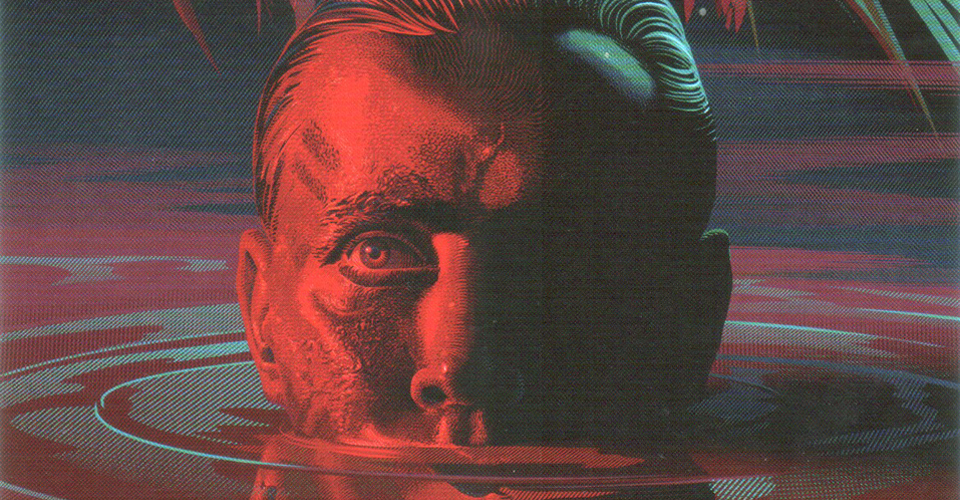[Rated MA 15+]
4.5 stars
To mark the 40th anniversary of the cinematic release of Apocalypse Now, director Francis Ford Coppola has created what he believes is the definitive version of his intense, harrowing and often crazed study of the darkness of the human heart. Or, at least, the version he likes best.
The story is familiar to most. Battle-weary, permanently altered Special Ops Captain Benjamin Willard (Martin Sheen) is assigned a mission to venture into Cambodia where he is to track down and terminate the command of one Colonel Walter Kurtz (Marlon Brando). Kurtz, commanding a band of Montagnards who treat him like a god, is “operating without any decent restraint, totally beyond the pale of any acceptable human conduct”. It is implied, with almost no degree of subtlety by his superiors, that Willard is to kill Kurtz. The film covers his journey upstream, accompanied by the crew of a small patrol boat, until they arrive at Kurtz’ compound. On the way, both Willard and the audience are immersed in the madness of the Vietnam War, to a point where it is almost impossible to discern good from evil.
The filming of Apocalypse Now was beset with difficulty. Over-budget and taking an eon to shoot, the film took a significant toll on many of those involved (see the documentary Hearts Of Darkness: A Filmmaker’s Apocalypse for an insight). It was probably worth it. From the grainy opening shots of helicopters slowly passing in front of palm trees, set to an intoxicating soundtrack of The Doors’ The End, the film is an absorbing experience. Almost universally accepted as a masterwork, this is not so much a critique of Apocalypse Now as it is a comment of this new cut.
Coppola prefaces the screening with a short filmed introduction, explaining that his previous attempt at a re-cut, Redux, strove to include everything that was taken out of the 1979 version. Final Cut is a more considered approach; one he is happy with.
Apocalypse Now is a visual wonder on every level, and to see it on a new and shiny print is manna from Heaven. The sound has also been enhanced. The stereo is stunning and, as Coppola mentions in his preview, the audience can now feel the explosions as well as hear them. The score seems more prominent in this version but perhaps this is because, over time, one notices the more subtle elements of films with which they have become very familiar. Despite being firmly timestamped in the late-1970s (rather than the time in which the film is set) the score perfectly adds to the sense of disquiet and overall weirdness.
At 183 minutes, the film is closer in time to the original than to the sprawling Redux. Overall, however, it bears a closer resemblance to the later version.
Most of the edits are small in nature and help remove some of the more abrupt scene changes to allow for a greater flow to the adventure. Others fix some minor continuity errors and a few add to the drama.
Two of the four major inserts that found their way into Redux are included here. Both are largely unnecessary. The first being the scenes following the meeting with seemingly untouchable Lieutenant Colonel Bill Kilgore (brilliantly portrayed by Robert Duvall). These almost comedic few minutes begin with Lance Johnson’s unwillingness to surf and only serve to dilute the impact of the Kilgore character. They also reduce the perceived level of Willard’s damaged intensity, and sideswipe the increasing level of tension.
The second insert is the much-discussed (at the time of the Redux release) unexpected sojourn at a French plantation. For 20 minutes the whole film goes into stasis while we watch an incongruous chapter, largely set around a dinner table; it’s the most concrete section of this most abstract film and debate about the scene’s inclusion in this version will rightly continue.
After an unsettling climax, the film dissolves away in an understated yet memorable manner, and the credits roll in simple white on black. Much better than the cavalcade of explosions that accompanied the end credits in some versions.
This cut is from the man who created two of the greatest films in recent motion picture history, so how can anyone really argue with his editing choices? Even with the somewhat contentious major inclusions, Apocalypse Now still remains a film for the ages, and Final Cut is a worthy, if marginally flawed, effort in the perpetuation of this piece of cinematic art.
David Robinson
The Clothesline Rating...
David Robinson
Someday this war's gonna end.




